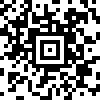What are we doing for disk imaging theses days?
dd ?
Rather use
dd_rescueas it’ll retry if it encounters any reading issue.No need for all these new-fangled tools when good ol’
dddoes the job just fine. (Though they certainly reduce the chance of accidentally nuking the wrong disk).
Ddeez nuts
Ones I have used: GNOME Disks’ create and restore image features. Possibly Mint’s
mintstickfor writing a distro’s.isoout to a USB stick. I am not too sure on that.I assume old-school
ddstill works as well, which might be a better option for scripted backups or minimal systems.Clonezilla and Rescuezilla The Clonezilla method takes a bit time to get used to (but I like it). Rescuezilla comes with a GUI.
Clonezilla has been my goto backup / restore solution for years. I’ve used it on everything from RaspberryPi SD Cards to a Dell Poweredge server with PERC RAID controller (because some fool setup the wrong RAID parameters).
I didn’t know about Rescuezilla though… so thanks for that.
To add to this. Take a look at the fog server project. It allows you to PXE boot and pull and push images in a automated way.
Take a look at the fog server project.
Thanks. https://fogproject.org
Definitely ddrescue. Unlike traditional dd, it can deal with failing drives, it’s operation is resumable, and has some other features that’s helpful. I would recommend using it even if your drive is fine.
What it produces is a byte for byte copy just like dd.DD is the best for 1-1 copying, but I like to use CloneZilla, because it can compress and encrypt the images.
Gnome disk utility.
I like it so much I have it on my KDE boxes too.
Yeah I just started using Linux half a year ago and tried a few distros and DEs, but GNOME “disks” is just the easiest way to set up auto mounting and is available on any package manager I came across so far.
It crashes for me when I try to write a image
cpAfter learning how to install medicat i discovered ventoy. With ventoy you can copy and paste how ever many bootable iso files you like into it and run them all from the same drive/partition from a selectable boot menu. It’s amazing, I won’t be using dd anymore for boot disks.
Careful where you point that thing. I unintentionally disrupted someone’s life by introducing them to ventoy. Now they have been distrohopping like crazy because of how easy it is.
😀
pv. It’s just cat, with a progress meter.
The native tools
I use FSArchiver. There’s nice list on Archwiki.
cp.
@uhmbah
I use gnome-disks.
Then according to this german article:
gnulinux.ch/raw-images-verklei…
I reduce the images Partition to the smallest possible.
edit it’s content with kpartx and remove cache, tmp and trashbin
and reduce the disk and image size with pishrink.Just to throw another option out there,
partclonewill only copy data that is being used in a partition, without all the empty space. I don’t believe it helps for encrypted partitions, but you could always just image the unencrypted filesystem withpartcloneto a drive with full disk encryption to work around that (and still prevent storing data unencrypted). Saves a lot of space.Also, in the context of backups, I often prefer to use
btrfs sendto create and update backups through snapshots quickly and efficiently instead of imaging (though of course that requires you to use btrfs). Full imaging is pretty inefficient for my needs, and takes a lot of time.








